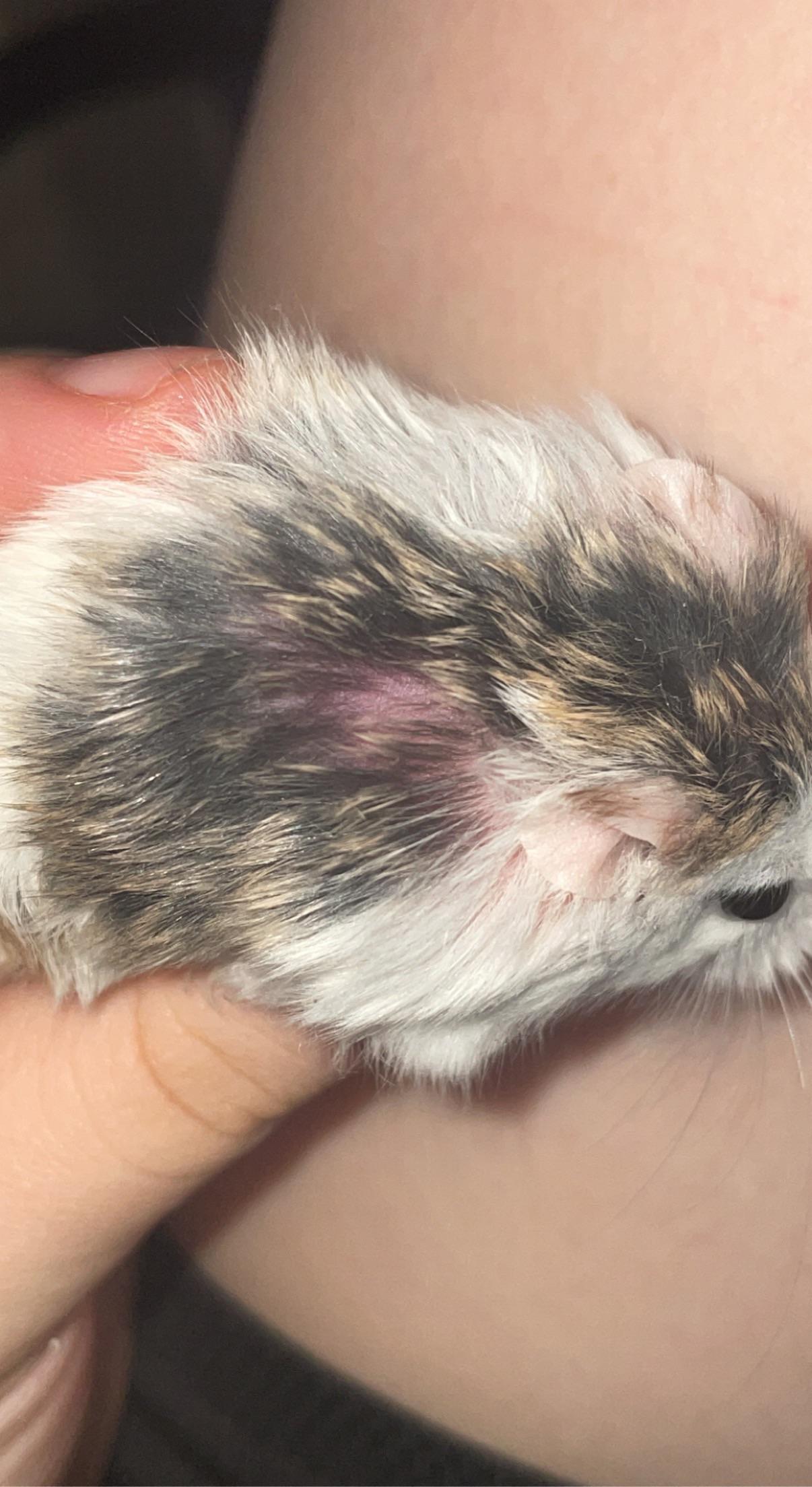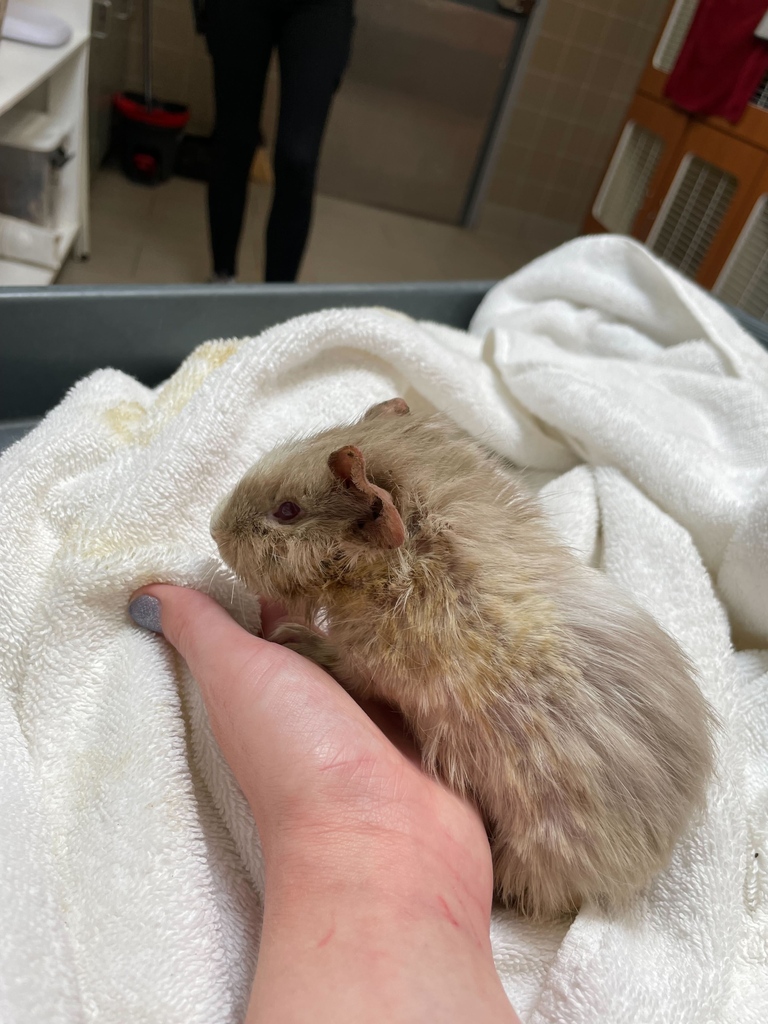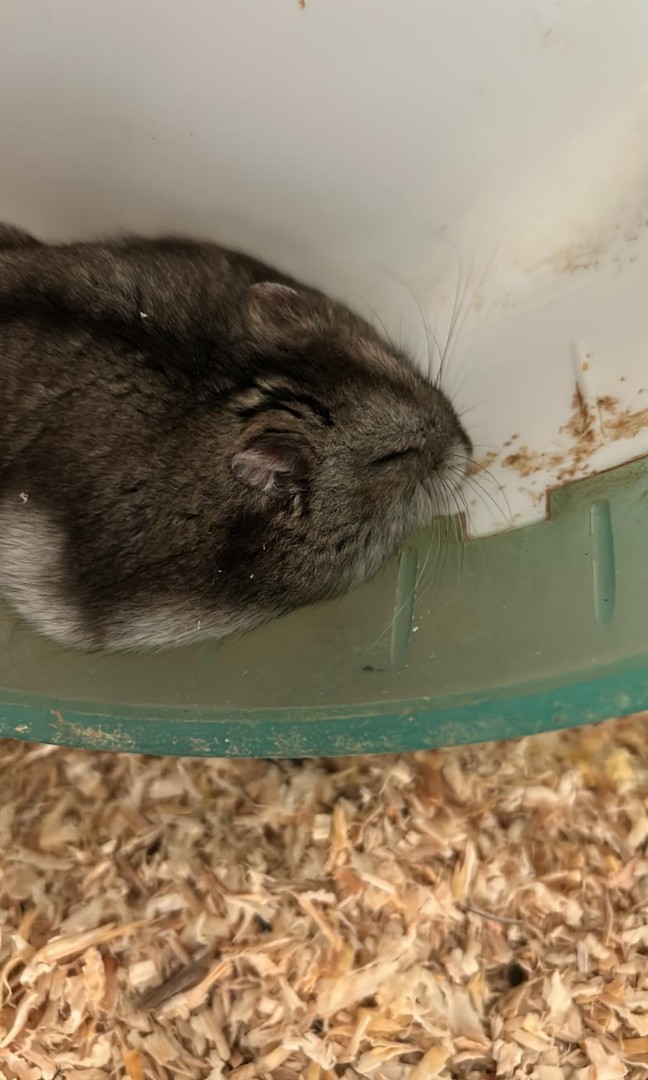Fluffy, adorable, and perpetually in motion, hamsters bring joy to countless homes. However, the sight of your beloved hamster sporting patchy fur can be alarming. Hair loss in hamsters, technically termed alopecia, can be a symptom of various underlying issues, ranging from simple grooming habits to serious medical conditions.
This comprehensive guide delves into the world of hamster hair loss, providing you with the knowledge to understand the potential causes, recognize the symptoms, and take appropriate actions to help your furry friend.
>> READ MORE:
- Choosing the Best Hamster Food A Comprehensive Guide
- The Big Hamster A Giant Among Rodents
- The Ultimate Guide to Setting Up a 40-Gallon Tank for Your hamster
- Do Hamsters Get Rabies?
Understanding the Basics

Hamsters, by nature, are meticulous groomers. They spend a considerable amount of time meticulously cleaning their fur, ensuring a healthy and clean coat. This process typically involves licking and chewing their fur, removing dirt, debris, and loose hairs. However, excessive or patchy hair loss can be a sign of a problem.
Common Causes of Hair Loss in Hamsters:
- Stress and Anxiety
- Nutritional Deficiencies
- Parasites and Skin Infections
- Environmental Factors
- Medical Conditions
Before panicking, remember, occasional hair loss is normal. However, if the hair loss is significant, persistent, or accompanied by other symptoms, it’s crucial to investigate the underlying cause. Here’s a breakdown of common culprits:
Stress and Anxiety

Symptoms of Stress in Hamsters:
- Patchy hair loss, particularly around the flanks and back
- Aggressive behavior
- Decreased appetite
- Excessive grooming or scratching
- Hiding or retreating to one area of the cage
- Restlessness or excessive running on the wheel
- Changes in bathroom habits (not using the litter box)
Causes of Stress in Hamsters:
- Change in environment (new home, cage, or introduction of new pets)
- Loud noises or sudden movements
- Handling or social interaction that is too frequent or rough
- Lack of stimulation or enrichment in the cage
- Illness or injury
- Lack of a proper sleep schedule (nocturnal animals may become stressed if they are constantly woken during the day)
Stress can induce excessive grooming as a coping mechanism, leading to hair loss. If your hamster is showing signs of stress, it’s essential to identify and eliminate the source of stress to prevent further hair loss and promote overall well-being.
Nutritional Deficiencies and Hair Loss

Hamsters require a balanced and nutritious diet to maintain a healthy coat. A lack of essential vitamins and minerals can lead to hair loss and other health issues. Here are some common nutritional deficiencies that can cause hair loss in hamsters:
Vitamin C Deficiency
Vitamin C is crucial for hamsters as they cannot produce it on their own. Lack of this vitamin can result in scurvy, a condition that affects the skin and coat, causing hair loss, dryness, and flaking. Some signs of vitamin C deficiency in hamsters include:
- Lethargy
- Swollen joints
- Bleeding gums
- Poor appetite
- Weight loss
To ensure your hamster gets enough vitamin C, provide them with a high-quality hamster pellet that contains this essential nutrient. You can also supplement their diet with fresh fruits and vegetables such as bell peppers, broccoli, and kale.
Protein Deficiency
Protein is essential for the growth and maintenance of a hamster’s fur. A diet low in protein can lead to thinning or patchy hair. Make sure to feed your hamster a high-quality pellet that is specifically formulated for hamsters and contains at least 18-20% protein.
Zinc Deficiency
Zinc is a mineral that plays a vital role in maintaining healthy skin and fur. A deficiency in this nutrient can cause dry, flaky skin and hair loss. Signs of zinc deficiency in hamsters include:
- Brittle or dull fur
- Poor coat quality
- Delayed wound healing
- Loss of appetite
To ensure your hamster gets enough zinc, provide them with a varied diet that includes foods rich in this mineral, such as pumpkin seeds, sunflower seeds, and wheat germ.
Parasites and Skin Infections

Parasites and skin infections are common causes of hair loss in hamsters. They can cause irritation and itching, leading to excessive grooming and hair loss. The most common parasites that affect hamsters are mites and lice.
Mites
Mites are microscopic insects that live on the skin of hamsters and other small animals. They can cause severe itching and lead to hair loss if left untreated. Some symptoms of mites in hamsters include:
- Scratching and constant grooming
- Red, irritated skin
- Dry, flaky skin
- Scabbing or crusty areas on the skin
- Hair loss, particularly around the face, neck, and ears
If you suspect your hamster has mites, consult your veterinarian for proper treatment. Your vet may prescribe a topical medication or recommend cleaning and disinfecting the cage and all accessories to prevent re-infestation.
Lice
Lice are tiny, wingless insects that can infest your hamster’s fur. They feed on the skin, causing intense itching, which can lead to hair loss. Signs of lice in hamsters include:
- Constant scratching and grooming
- Visible eggs or bugs on the fur
- Patchy hair loss
- Irritated, inflamed skin
- Anemia (in severe cases)
If you notice any signs of lice in your hamster, consult your veterinarian for proper treatment. They may prescribe a medicated shampoo or recommend cleaning and disinfecting the cage and all accessories.
Stress and Environmental Factors

Apart from stress, other environmental factors can contribute to hair loss in hamsters. These include:
- Poor hygiene or dirty living conditions
- High humidity levels (can cause fungal infections)
- Excessive heat or cold
- Poor ventilation (can lead to respiratory problems)
- Exposure to chemicals or toxins
- Rough handling or injuries
To prevent hair loss due to these environmental factors, ensure your hamster’s cage is clean, dry, and well-ventilated. Avoid using harsh chemicals near your hamster’s cage, and always handle them gently to prevent injuries.
Medical Conditions and Hair Loss
Hair loss in hamsters can also be a symptom of underlying medical conditions. Some common issues that can cause alopecia in hamsters include:
Ringworm
Despite its name, ringworm is not caused by a worm but a fungus. This infection can affect the skin, causing hair loss, redness, and scaly patches. Ringworm can also be transmitted to humans, so it’s essential to consult your veterinarian for proper treatment.
Hormonal Imbalances
Hormonal imbalances can cause alopecia in hamsters, particularly in females during pregnancy or after giving birth. In male hamsters, testosterone-related hormonal imbalances can also lead to hair loss.
Cancer
In rare cases, hair loss in hamsters can be a symptom of cancer. Tumors can affect the skin and cause hair loss, along with other symptoms such as weight loss and lethargy. If you suspect your hamster may have cancer, consult your veterinarian for further evaluation and treatment options.
When to Consult a Veterinarian
As a responsible pet owner, it’s crucial to monitor your hamster’s health and behavior regularly. If you notice any changes in your hamster’s fur, such as excessive shedding, patchiness, or bald spots, it’s essential to investigate further. Here are some situations when you should consult your veterinarian:
- When the hair loss is significant, persistent, or accompanied by other symptoms
- If your hamster’s behavior or appetite has changed
- If there are any open wounds or signs of infection on the skin
- If you suspect your hamster may have parasites or an underlying medical condition
- If your hamster seems uncomfortable or in pain
Conclusion
Hair loss in hamsters can be alarming and concerning, but in most cases, it can be treated or prevented with proper care and attention. As a responsible pet owner, it’s crucial to understand the potential causes and take appropriate actions to help your furry friend. By being aware of the common culprits, regularly monitoring your hamster’s health, and seeking veterinary care when needed, you can ensure your hamster maintains a healthy and luscious coat for years to come.

